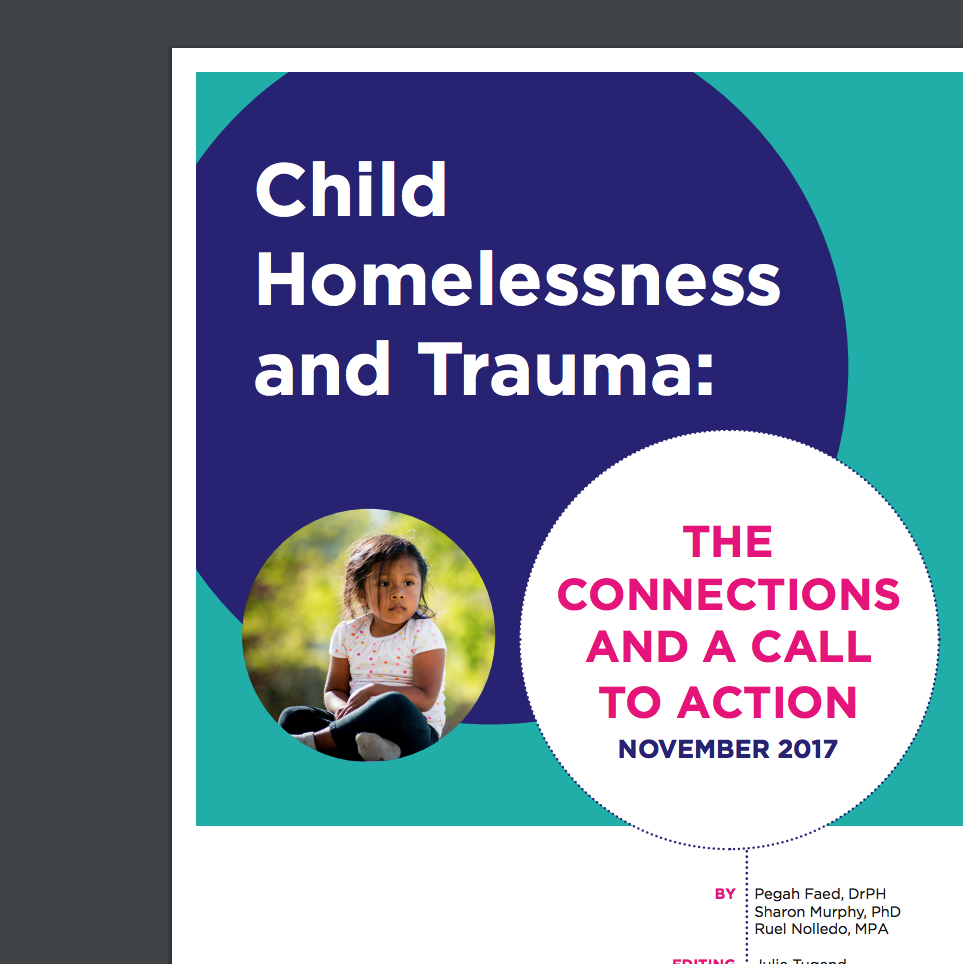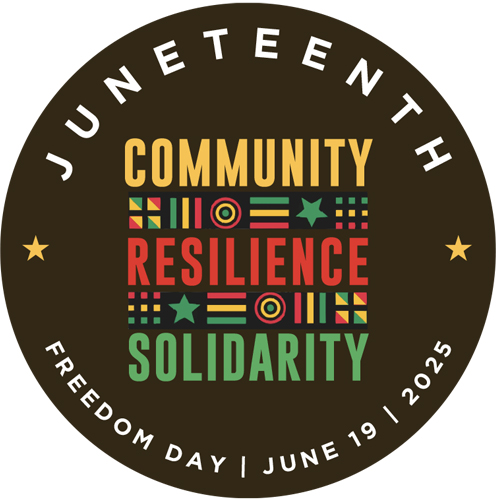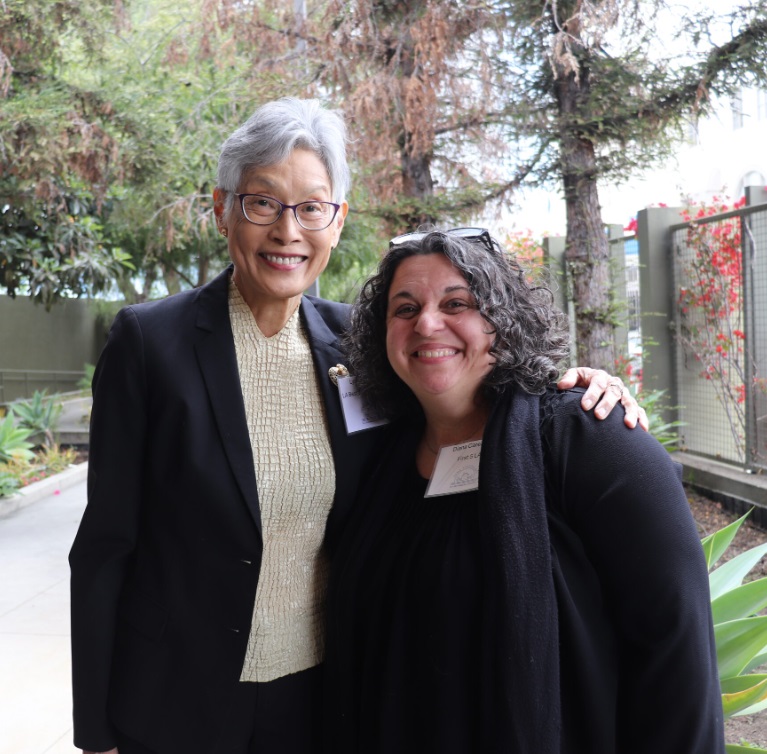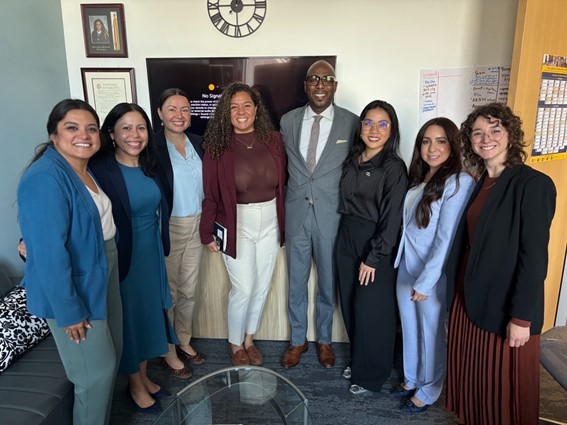Lower Academic Scores, Poorer Health Among Homeless Children Prompts Leading Children’s Advocate to Recommend a Trauma-Informed Approach to Help Prevent and Mitigate Impact
Los Angeles– First 5 LA today released a report that explores how homelessness and trauma affects young children, as well as recommendations for effectively improving outcomes for children and families experiencing homelessness.
The National Center on Family Homelessness estimates that 2.5 million children in America go to sleep without a place to call home each year. In Los Angeles County, First 5 LA estimates that roughly 3,000 children under age six are homeless on any given night. While homelessness is traumatic for adults, the effects on young children who are still developing physically, mentally, socially and emotionally can be devastating.
“We can’t afford to overlook the lasting effect stress and trauma has on a child’s life as he or she becomes an adult.” Kim Belshé
“Trauma has troubling long term implications for children in their early years when research tells us that 90 percent of brain development occurs by age five,” said Kim Belshé, Executive Director of First 5 LA. “We can’t afford to overlook the lasting effect stress and trauma has on a child’s life as he or she becomes an adult.”
Children experiencing homelessness must deal with fears that their most basic needs won’t be met. The loss of community, possessions, routines, privacy and security is highly stressful and can lead to anxiety, depression, withdrawal and aggression at a rate three times higher than children who are not homeless. These children are often at a physical disadvantage as well – they are sick at twice the rate of other children and have higher rates of obesity relative to the national average.
In terms of academic success, children who have experienced homelessness were found to have lower classroom engagement and lower scores in reading, math and general cognitive ability. These disparities between homeless and non-homeless children extend to overall educational achievement, with homeless children being twice as likely to repeat a grade and to be diagnosed with a learning disability.
While it is important to recognize the profound impact of homelessness and trauma on youth, positive research and promising practices show how organizations and systems can help prevent the exposure to the effects of trauma by focusing on healing and resiliency.
“Exposure to trauma often goes unrecognized and unaddressed. Research on optimal child development has shown the positive impact of early intervention programs on building resilience and preventing risk factors for homelessness from developing,” said Dr. Pegah Faed, Senior Program Officer. “Infusing a trauma informed approach throughout child and family service delivery systems is critical to building the capacity of providers to recognize trauma and intervene appropriately.”
Safe and Nurturing
Safe and nurturing relationships can be strengthened by implementing trauma-informed approaches throughout the systems of health and mental care with which families with children prenatal to 5 interact. Regardless of the type of service provided, a trauma-informed approach is increasingly considered a key component and standard of quality care. As the National Center on Family Homelessness notes, providing trauma-informed care requires an organizational commitment to building the knowledge, awareness, and skills needed to create service environments that acknowledge the impact of trauma and support recovery and healing. First 5 LA, in collaboration with its partners, is advocating and taking a number of steps to promote and implement a trauma-informed approach throughout L.A. County, including:
- Trauma and Resiliency Informed Systems Change Workgroup – In partnership with The California Endowment, the California Community Foundation, Conrad N. Hilton Foundation, and Ralph M. Parsons Foundation, First 5 LA pooled together more than $200,000 in funds to launch a countywide trauma-informed care systems change initiative with the commitment of more than 30 public, nonprofit and philanthropic partners. The first phase of this initiative was to issue a report and recommendations based upon the latest research and trauma-informed systems change efforts from across the nation. Using these recommendations as a guide, the funders and county-wide partners will begin to plan and advance specific activities to create a trauma and resiliency informed Los Angeles County. For access to the report, visit https://www.first5la.org/files/Trauma.pdf
- Parent and Child Interaction Therapy (PCIT) – First 5 LA invested nearly $20 million to help provide PCIT for families with children who were diagnosed with behavioral issues often associated with past maltreatment. Programs like PCIT help children and families cope with and recover from trauma; these programs can help prevent future homelessness and other negative impacts associated with early childhood trauma.
- First 5 LA’s Permanent Supportive Housing Initiative – First 5 LA invested $35 million to provide housing and services for 1,678 families with young children that were homeless or at risk of homelessness.
- Funding Training through United Way’s Home for Good – A joint effort with Home for Good, a public and private funding collaborative convened by the United Way to help expand training and utilization of trauma-informed approaches to service delivery systems assisting homeless families.
“Understanding the connections between homelessness and trauma is an essential step in informing how these issues can be prevented and successfully addressed by the systems and staff that serve young children and their families ” said Dr. Sharon Murphy, Strategic Partnerships Manager, First 5 LA. To read the full report and recommendations, visit www.first5la.org/files/ChildHomelessnessTrauma.pdf
###






